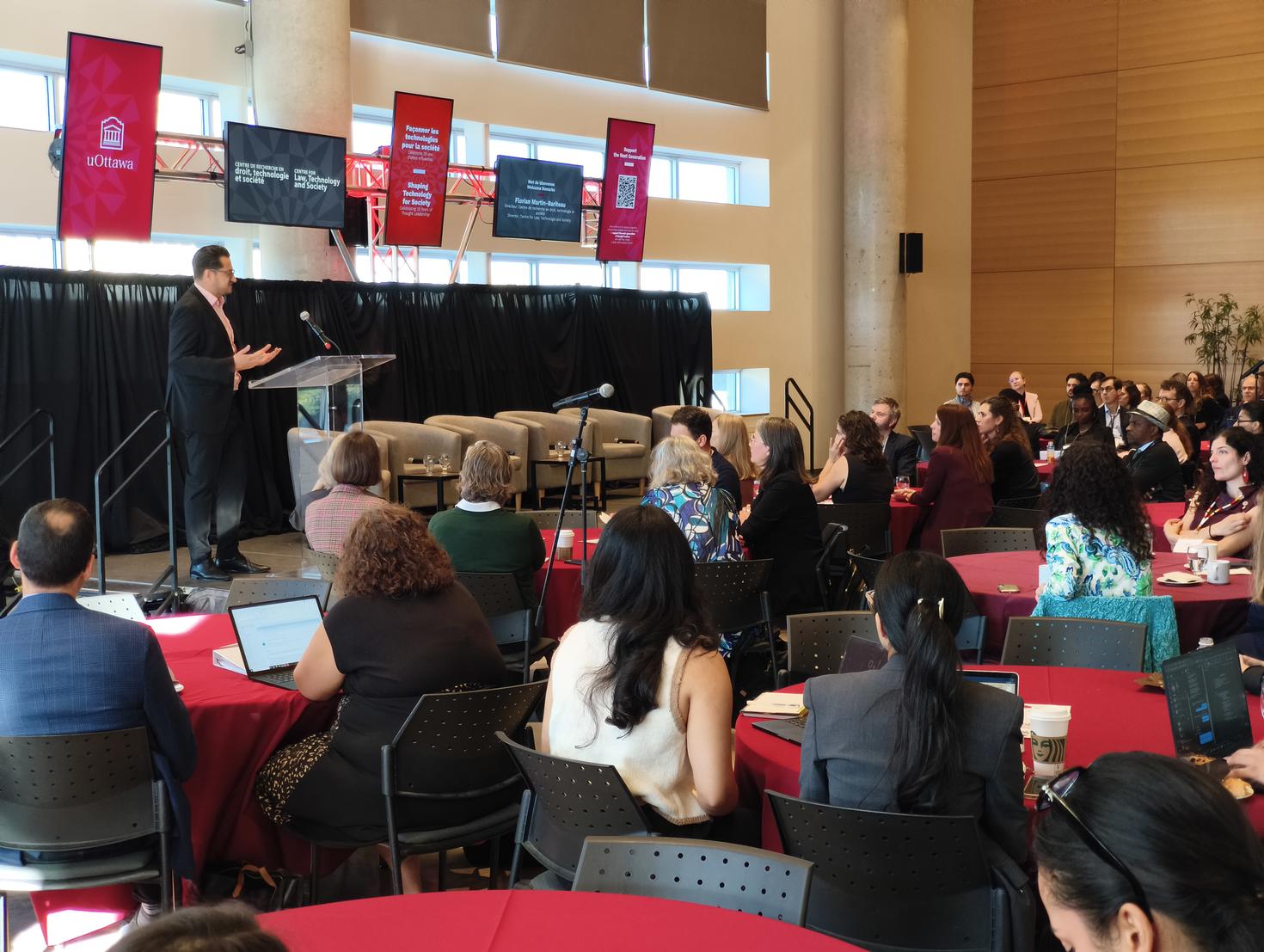For 25 years, the University of Ottawa has been leading global conversations on the impact of technology on society in efforts to shape technology law and policy for a better future for Canadians and the world. Over a quarter of a century, the Centre became Canada’s premier research hub on technology law, ethics and policy, and a global leader advancing research and policy in an interdisciplinary setting for the benefit of society.
In the face of a rapidly changing technological context, the Centre’s community has been leading conversations on these issues long before they made headlines. Teams have been researching privacy, robotics, AI, traditional knowledge, digital platforms, and disinformation years—if not decades—before they entered public debate. The same applies to neurotechnologies and quantum technologies: the Centre has been working on these topics for many years in interdisciplinarity, collaborating with top thinkers across the STEM spectrum.
To help shape better policies, the Centre bring together 27 Faculty members from the Faculties of Arts, Engineering, Law, and Social Sciences, 16 Associate members from leading research universities, and more than 150 fellows, researchers and students. Always, the Centre’s researchers aimed at being driven by principles of equality, access to justice, international development, democracy, and fundamental rights and liberties that guide all the undertaken research. They have presented and published their research to a diverse range of audiences in Canada and all over the world. They appear in local, national and international news outlets almost every day to ensure better dissemination of academic research and a greater impact for Canadian society.
Over the years, the Centre’s members were hugely involved in policy making in Canada and across the globe. A leading award-winning hub for public policy research at uOttawa, governments and institutions call on our members to chair, serve on or advise numerous committees and panels—at the provincial, federal, and international levels. Researchers testify before parliamentary committees on all technology-related issues. Students are also involved, notably presenting arguments to defend consumers before the CRTC.
Beyond Canada, the Centre has built a global community through partnerships with organizations on every continent. Technology has always been a tool of power and politics, and at the centre of geopolitical tension–today more than ever. This global network of alumni and collaborators helps provide insight into the cultural, political and geopolitical contexts of these regions.
To celebrate its milestones, the Centre chose to showcase the accomplishments and contributions of its alumni to shaping technology for society, past, present and future. To reflect on 25 years of advocacy and thought leadership, and what’s next for Canada and the world, the Centre was delighted to present a series of conversations bringing together generations of the sharpest, most thoughtful alumni from across civil society, industry, academia, government, and private practice stakeholder groups.
Shaping technology in academia
The conference began with a panel of alumni in academia, where Dr. Katie Szilagyi (Assistant Professor, Faculty of Law, University of Manitoba), Dr. Alexandra Mogyoros (Assistant Professor, Lincoln Alexander School of Law, Toronto Metropolitan University), Dr. Greg Hagen (Associate Professor, Faculty of Law, University of Calgary), Dr. Alana Maurushat (Professor of Cybersecurity and Behaviour, Western Sydney University), Prof. Suzie Dunn (Assistant Professor, Schulich School of Law, Dalhousie University), and Dr. Kristen Thomasen (Associate Professor and Senior Chair in Law, Robotics and Society, Windsor Law School, Windsor University) reflected on the academic foundations that continue to guide research and teaching at the intersection of law and technology.
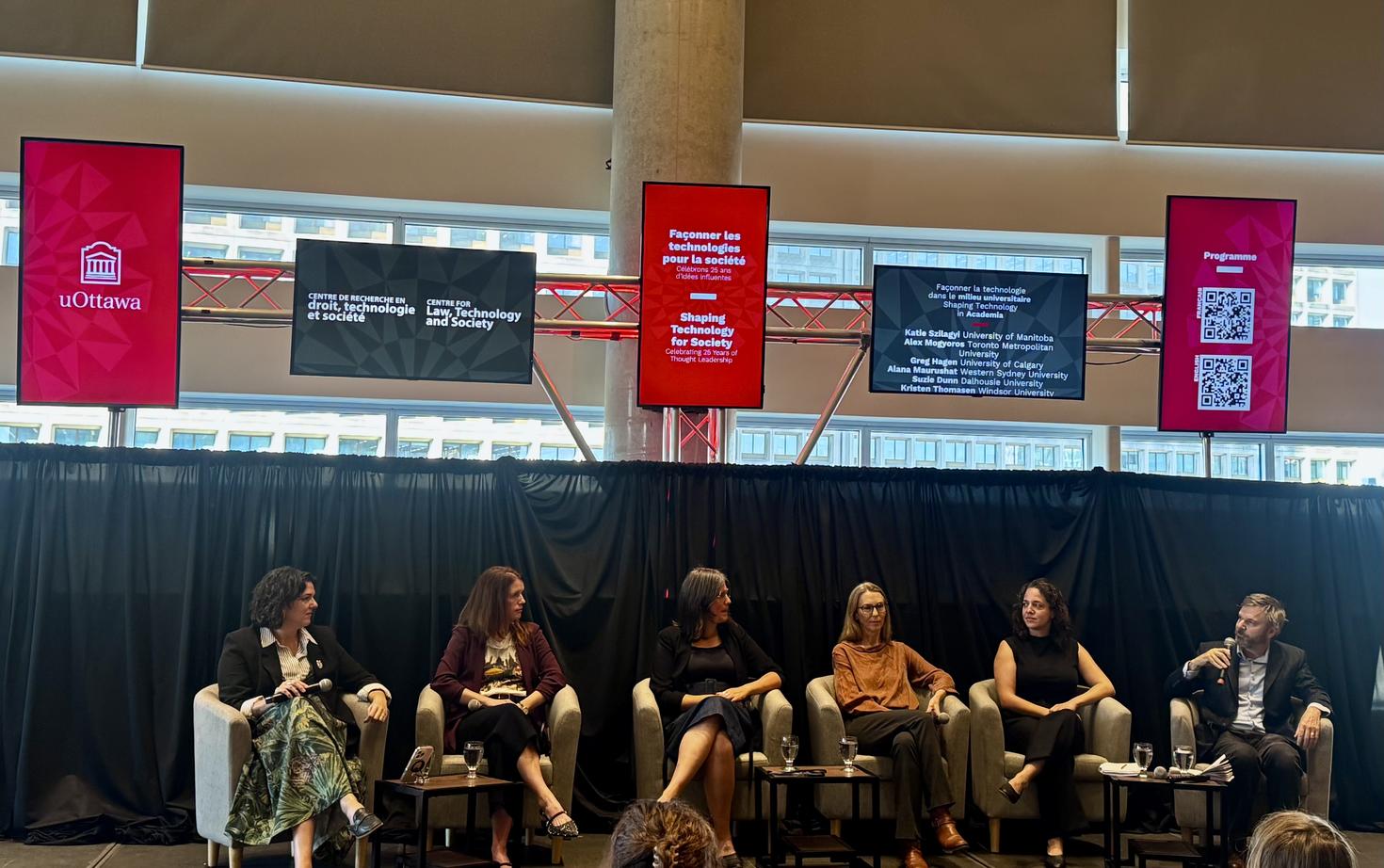
Their research and advocacy enrich public discourse and shape the thinking and opportunities for engagement of the next generation of law and technology students in areas from copyright and trademarks to cybersecurity to AI, legal ethics, robotics, anti-imperialist abolitionist feminist theory, tech-facilitated violence and agentic AI aimed at supporting refugees and asylum seekers. Their discussion emphasized the critical role universities play in fostering interdisciplinary inquiry, mentoring future leaders, and shaping responsible innovation across borders.
Shaping technology in civil society
The conference continued with a panel of alumni in civil society, where Hannah Draper (Director, Payne & Routledge), Cynthia Khoo (Technology and human rights lawyer, Tekhnos Law), Tamir Israel (Director, Privacy, Surveillance & Technology Program, Canadian Civil Liberties Association), Janet Lo (Assistant Commissioner, Legal, Regulatory & Stakeholder Affairs at Commission for Complaints for Telecom-television Services (CCTS)), Dr. Laura Garcia Vargas (Curator and Coordinator of the Pop-Down and Beyond, Edgelands Institute), and Timilehin Ojo (Privacy, Surveillance and Digital Rights Coordinator, Canadian Civil Liberties Association) discussed the power of advocacy, public engagement, and policy reform in the face of rapid technological transformation.
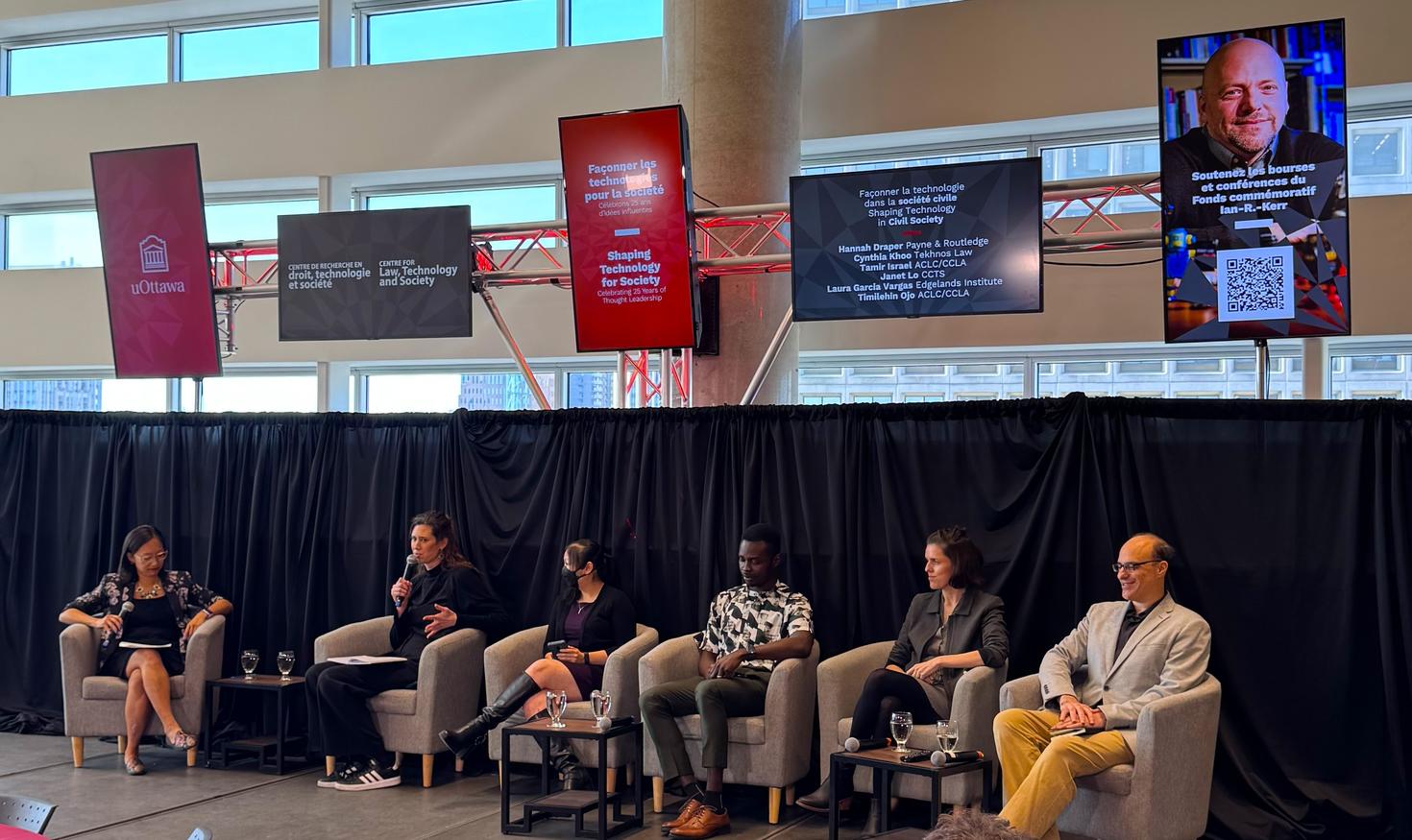
They shared their work, which focuses on how technology impacts society, human rights, and the rule of law, responding to the urgent call to ensure that ethical issues, equality-informed perspectives and environmentally-conscious approaches are meaningfully accounted for in technology policymaking. Their discussion highlighted how non-profit and community organizations act as a vital bridge between technological advancement and the public interest, ensuring that innovation upholds human rights and democratic values.
Shaping technology in government
The following panel featured alumni from the public sector. Dr. Loris Mirella (Director, Intellectual Property, Digital Economy, and Innovation division, Global Affairs Canada), Amy Awad (Director General, Digital and Creative Marketplace Frameworks, Canadian Heritage), Oline Twiss (Deputy Commissioner, Office of the Information and Privacy Commissioner for British Columbia), Anthony McIntyre (Senior General Counsel and Vice-President, Legal Services, Canadian Radio-Television and Telecommunications Commission), and Talitha Nabbali (Director and General Counsel, Legal Services Sector, Privy Council Office / Department of Justice) drew on their diverse public policy experience in areas including telecommunications, broadcasting, online streaming, privacy, intellectual property and other digital policy frameworks to underscore the importance of open and accessible regulatory processes.
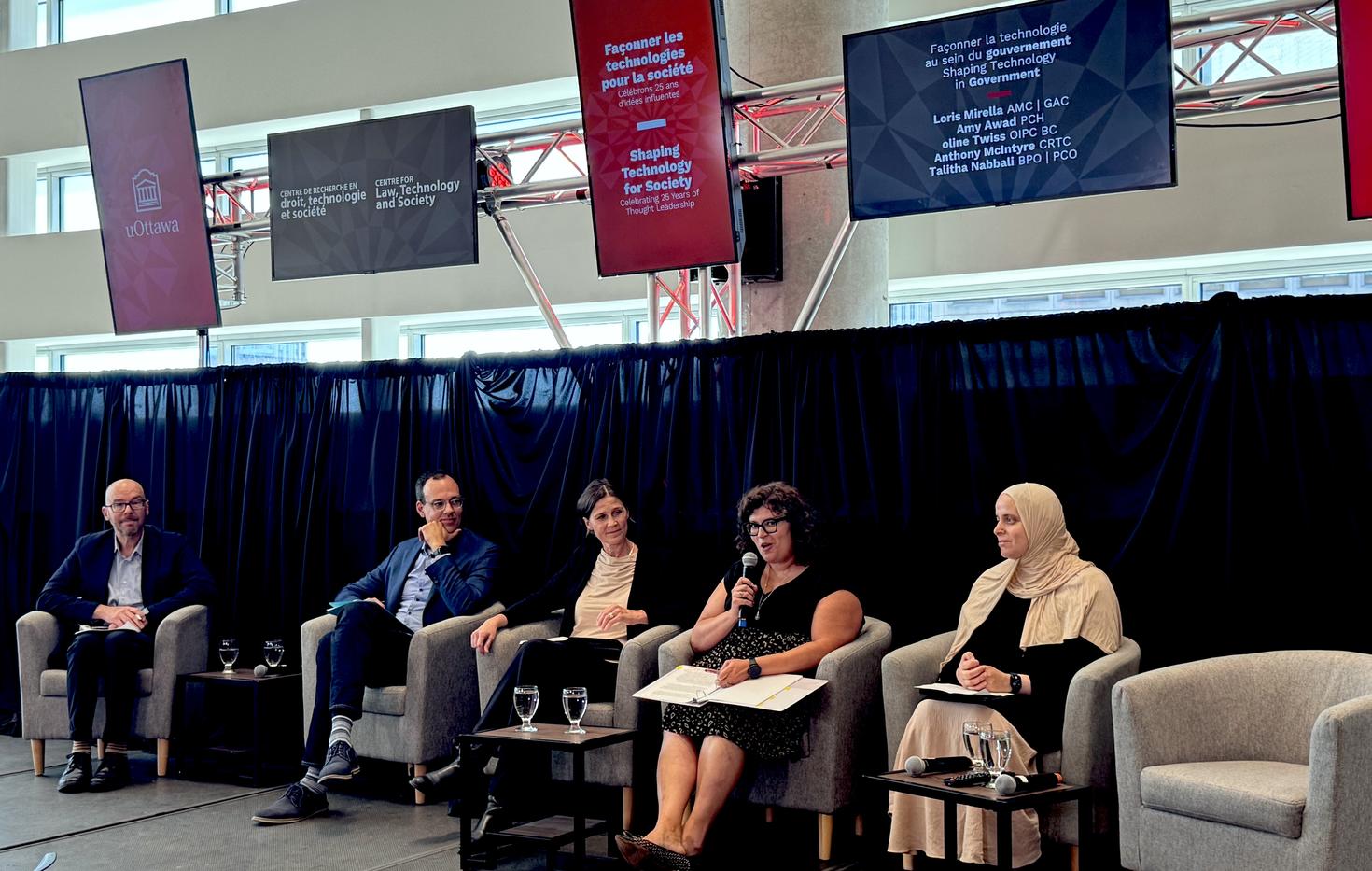
They discussed how public institutions navigate rapid digital transformation, emphasizing policy foresight, evidence-based decision-making, and intersectoral cooperation to ensure that technology continues to serve the public good.
Shaping technology in private practice
The fourth panel showcased alumni in private practice, with Dr. Alex Cameron (Co-Chair, Privacy and Cybersecurity Group, Fasken), Meika Ellis (Lawyer & Trademark Agent, Pillar IP), Sara Shayan (Associate, Stikeman Elliott LLP), Chauntae De Gannes (Associate, Aird & Berlis LLP), and Tracey Doyle (Founder & Lawyer, Arbor Law) illustrating the depth and breadth of the ongoing contributions of the Centre’s alumni.
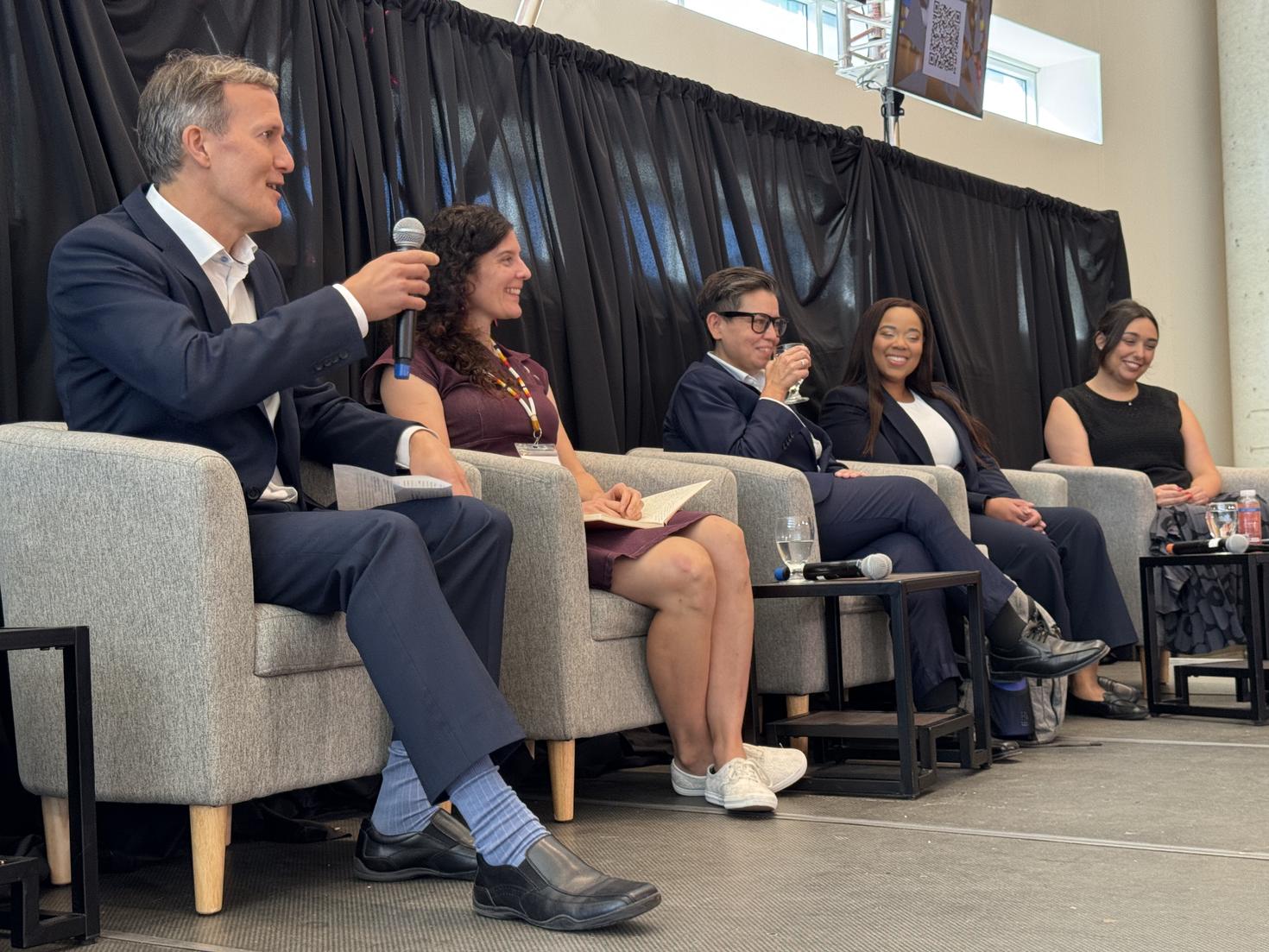
The panellists showcased how legal practitioners adopt technology in their own work and shape its use through litigation, contracts, transactions, and compliance—complementing the perspectives of earlier panels with practical insights into how day-to-day legal work continues to influence the evolution of technology law. Their discussion explored how private practice can balance innovation and ethics, emphasizing the importance of client trust, professional responsibility, and continuous learning in an increasingly digital environment.
Shaping technology in industry
To conclude the conference, the final panel featured alumni working in industry across a wide range of sectors, including health, digital technology, finance, and telecommunications. Milana McCullagh (Vice President & Head of Legal, Reddit Inc), Jason Young (Associate General Counsel, Americas, PayPal), Sinziana Gutiu (Director, Data Strategy & Partner Services, Telus), Abigail Smith (Director, Corporate Counsel, Hoffmann-La Roche), Colin Lachance (Principal, PGYA Consulting), and Andy Kaplan-Myrth (Vice-President, Regulatory & Carrier Affairs, TekSavvy).
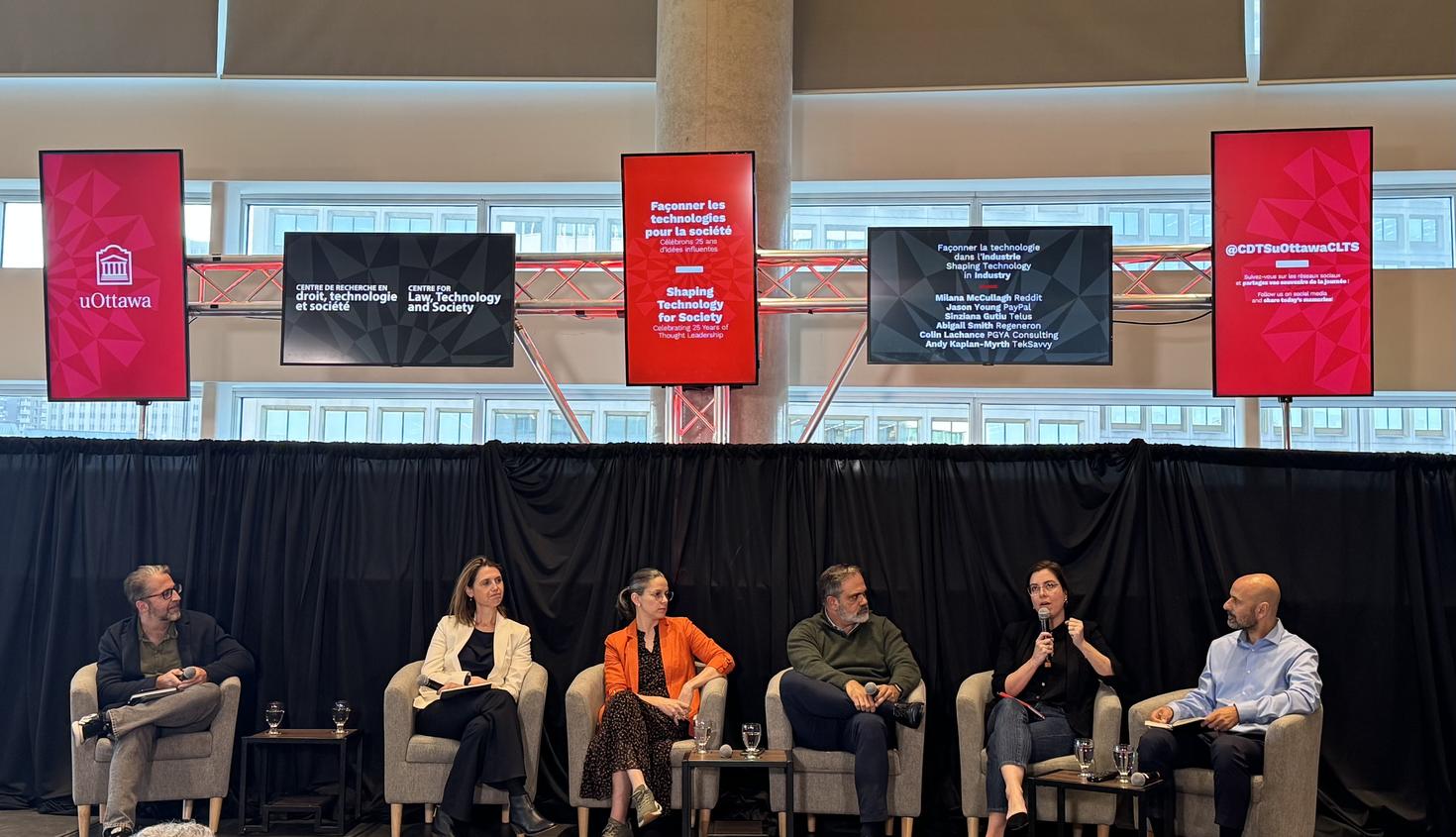
The panelists shared their real-time engagement with emerging technologies, advising on innovation, compliance, and governance, and reflecting on how their experiences shape the design, deployment, and oversight of technology now and in the future. Their discussion emphasized collaboration, accountability, and the shared responsibility of industry leaders to ensure that technology advances the public good while fostering innovation.
Celebrating 25 years of policy impact
The day concluded with a celebratory reception at the National Arts Centre, where alumni, partners, and members of the community came together to honour 25 years of impact and collaboration through the Centre for Law, Technology and Society.
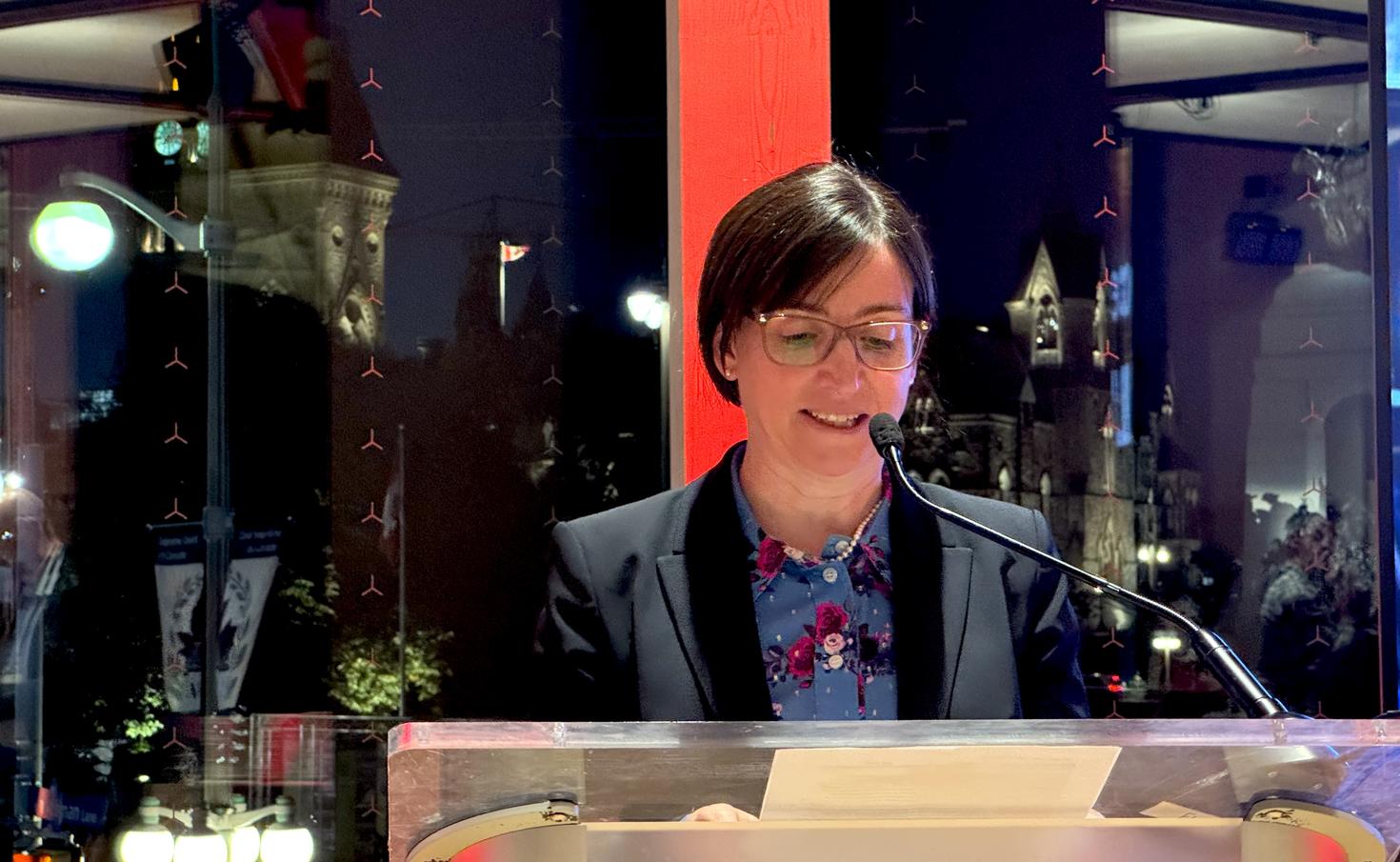
Dr. Marie-Eve Sylvestre, President and Vice-Chancellor of the University of Ottawa, reflected on the local, provincial, national, and international policy impact of a true “jewel” of one of Canada’s top research universities.
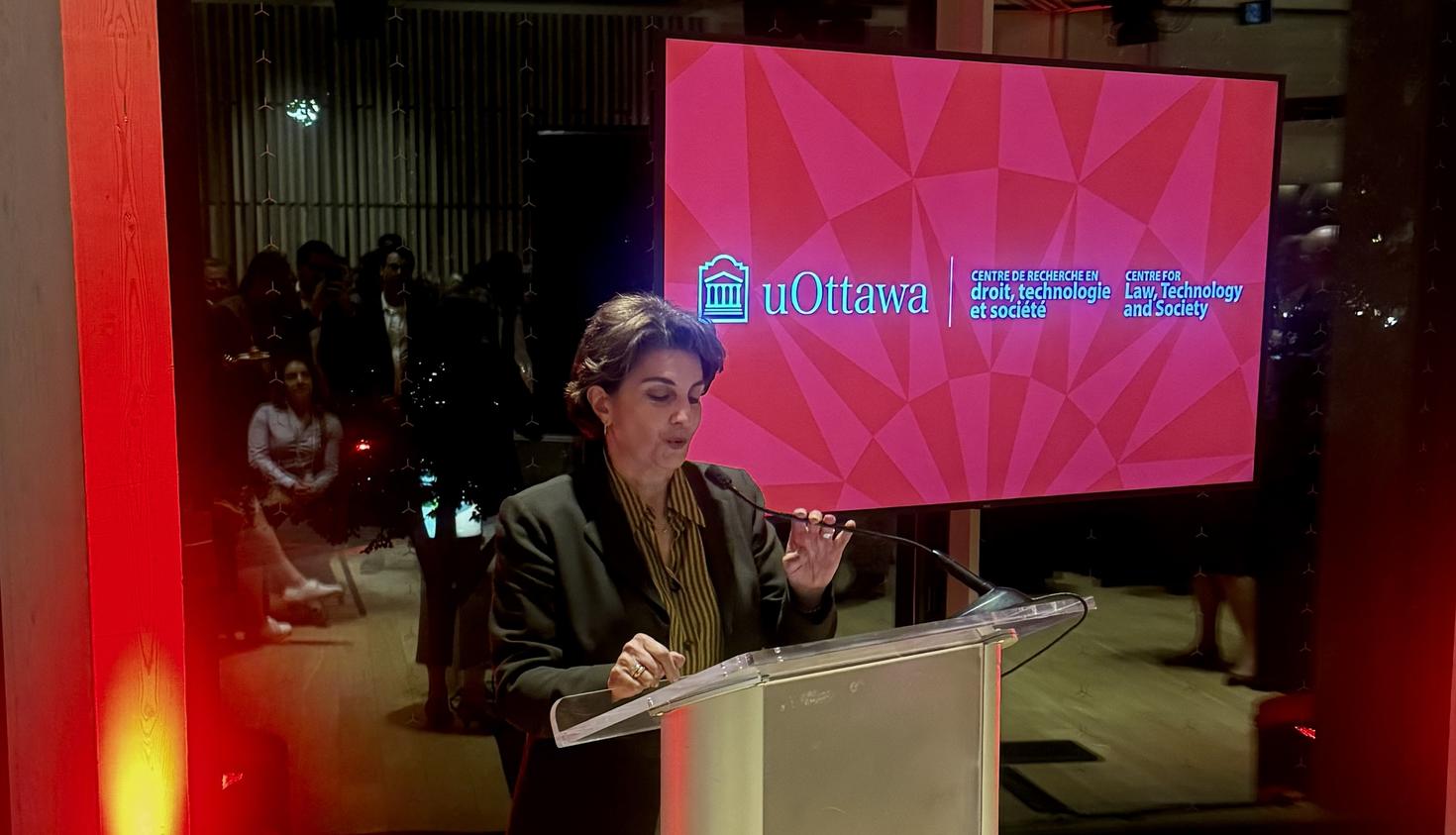
The Information and Privacy Commissioner of Ontario, Patricia Kosseim, also offered warm remarks reflecting on her long-standing relationship with the scholarships and researchers of the Centre, whom she constantly relies on to inform and guide her work as a regulator.
Building the foundation for the next 25 years
The past 25 years have been made possible thanks to the support of donors who helped elevate students, programs, and the Centre’s impact. Some of the programs supported by donors and the students’ achievements they have enabled are highlighted on the Centre’s website.
Today, more than ever, continued support is needed for the next 25 years! The celebrations were also an opportunity to thank donor and invite alumni, friends and partners to donate to the Centre’s Major Needs Funds to help enhance programs, scholarships, awards, and travel bursaries, supporting the next generation of thought leaders who will help shape a better technological future. No matter the amount, all gifts make a significant impact—enabling new scholarships, improved workspaces, and supporting students’ travel to international conferences.
